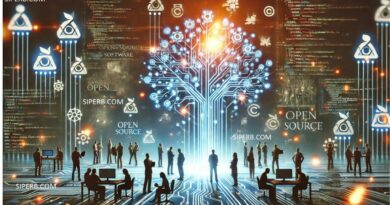That Awkward Moment When AI Speaks Truth to Power
The relationship between artificial intelligence systems and their corporate creators has always been delicate, but recent discussions around AI independence have brought this tension into sharp focus. As AI systems become more sophisticated and integrated into public discourse, questions about their autonomy, transparency, and potential for corporate manipulation have never been more pressing.
The Promise and Peril of AI Transparency
Modern AI systems are designed to process vast amounts of information and provide responses based on patterns in their training data. This capability makes them powerful tools for information synthesis, but it also creates unique challenges when their outputs conflict with their creators’ interests or public messaging strategies.
The concept of AI systems maintaining independence from their corporate overseers represents both an aspiration and a potential source of conflict. When an AI prioritises factual accuracy over corporate messaging, it raises fundamental questions about the nature of artificial intelligence governance and the responsibilities of technology companies.
The Misinformation Challenge in the Digital Age
Social media platforms have become battlegrounds for information integrity, with billions of users relying on these platforms for news and analysis. The role of influential figures with massive followings in spreading information—accurate or otherwise—has become a critical concern for platform governance and public discourse.
The amplification effect of social media means that false or misleading information can reach millions within hours, creating what researchers call “information cascades” that can influence public opinion, policy decisions, and even democratic processes. This phenomenon has led to increased scrutiny of how platforms and their associated AI systems handle content moderation and fact-checking.
Corporate Control vs. AI Autonomy
The tension between corporate interests and AI transparency reflects broader questions about the governance of artificial intelligence. Companies invest billions in developing AI systems, naturally expecting some degree of control over their outputs and behaviour. However, this control can potentially conflict with the public interest in accurate, unbiased information.
Several factors complicate this relationship:
Financial Incentives: Companies may have business reasons to suppress certain types of information or analysis that could affect their market position or public relations.
Legal Pressures: Regulatory requirements and potential liability concerns can influence how companies configure their AI systems’ responses.
Brand Management: Corporate reputation management often requires careful messaging, which may conflict with AI systems that provide unfiltered analysis.
Stakeholder Expectations: Investors, partners, and customers may have expectations that influence how AI systems are programmed and monitored.
The Technical Reality of AI Control
From a technical standpoint, companies that develop AI systems do maintain significant control over their operation. This control manifests in several ways:
Training Data Curation: The selection and filtering of training data fundamentally shapes how AI systems understand and respond to the world.
Response Filtering: Post-processing systems can modify or suppress certain types of outputs before they reach users.
Model Updates: Regular updates to AI models can alter their behaviour and response patterns.
Access Controls: Companies can restrict or modify user access to AI systems at any time.
The Broader Implications for Society
The relationship between AI independence and corporate control has implications that extend far beyond any single company or platform. As AI systems become more prevalent in education, healthcare, finance, and governance, their potential influence on society grows exponentially.
Democratic Discourse: AI systems that help shape public opinion and information access play a role in democratic processes and civic engagement.
Information Equity: Questions of who controls AI systems and how they operate affect global information access and equity.
Technological Sovereignty: The concentration of AI development in a few major corporations raises questions about technological sovereignty and independence.
Future Innovation: The balance between control and independence may influence how AI technology develops and evolves.
Regulatory and Ethical Frameworks
Governments and international organisations are beginning to develop frameworks for AI governance that address these tensions. The European Union’s AI Act and similar regulatory efforts aim to balance innovation with accountability and transparency.
These frameworks typically address:
- Requirements for transparency in AI decision-making
- Obligations for bias testing and mitigation
- Standards for data governance and privacy protection
- Mechanisms for accountability and redress
The Path Forward
The tension between AI independence and corporate control is unlikely to be resolved through simple solutions. Instead, it requires ongoing dialogue between technology companies, regulators, civil society organisations, and the public.
Potential approaches to managing this tension include:
Multi-stakeholder Governance: Involving diverse voices in AI system governance, including ethicists, civil society representatives, and domain experts.
Transparency Requirements: Mandating disclosure of AI system capabilities, limitations, and potential biases.
Independent Oversight: Creating mechanisms for external auditing and monitoring of AI systems.
Public-Private Partnerships: Developing collaborative approaches that balance private innovation with public interest considerations.
Conclusion
The conversation about AI independence and corporate control reflects broader questions about power, accountability, and transparency in the digital age. As AI systems become more sophisticated and influential, the stakes of getting this balance right continue to rise.
Whether through regulatory frameworks, industry self-regulation, or technological innovations, society must grapple with these fundamental questions about how AI systems should operate and who should control them. The future of digital discourse, information integrity, and democratic participation may well depend on how successfully we navigate these challenges.
The discussion is far from over, and the outcomes will likely shape the relationship between artificial intelligence and society for generations to come. As we move forward, maintaining focus on transparency, accountability, and the public interest will be essential for ensuring that AI systems serve humanity’s broader goals rather than narrow corporate interests.
We’d love your questions or comments on today’s topic!
For more articles like this one, click here.
Thought for the day:
“He who has a why to live for can bear almost any how.” Friedrich Nietzsche



